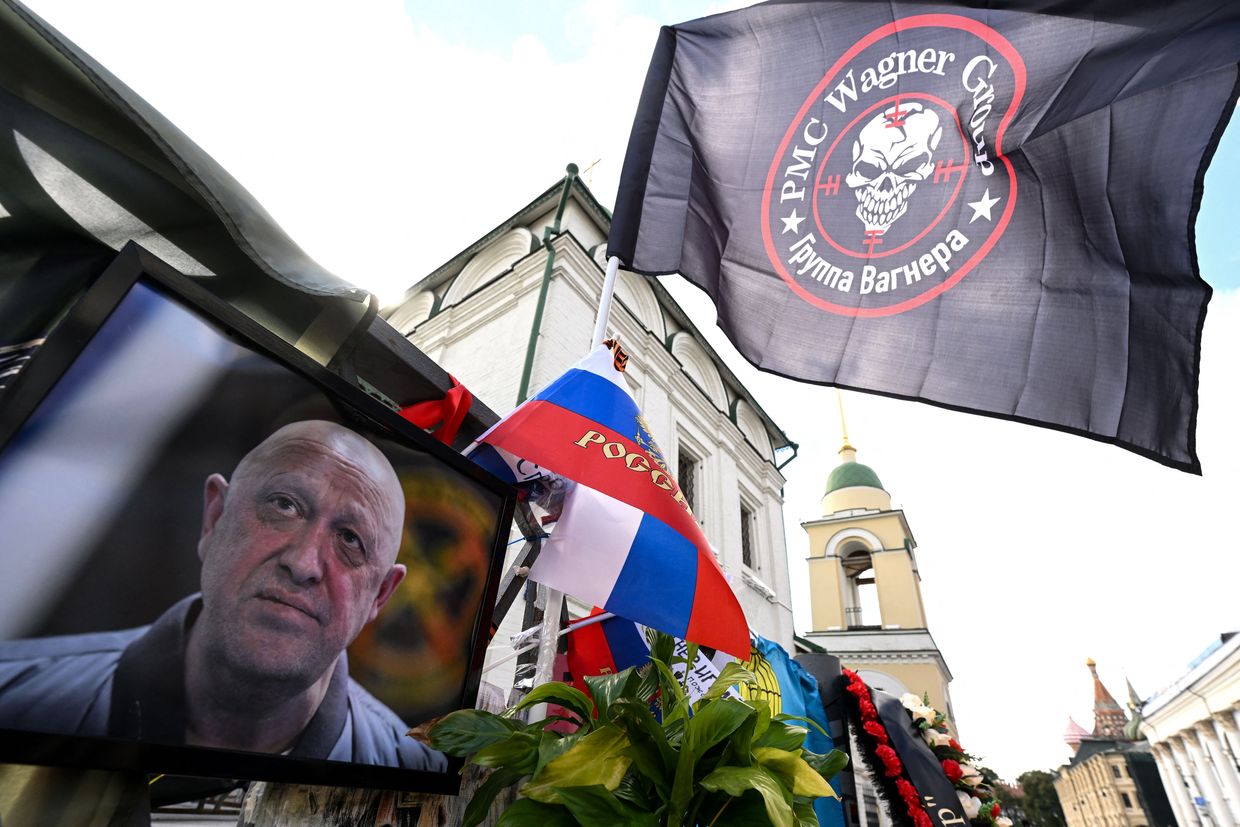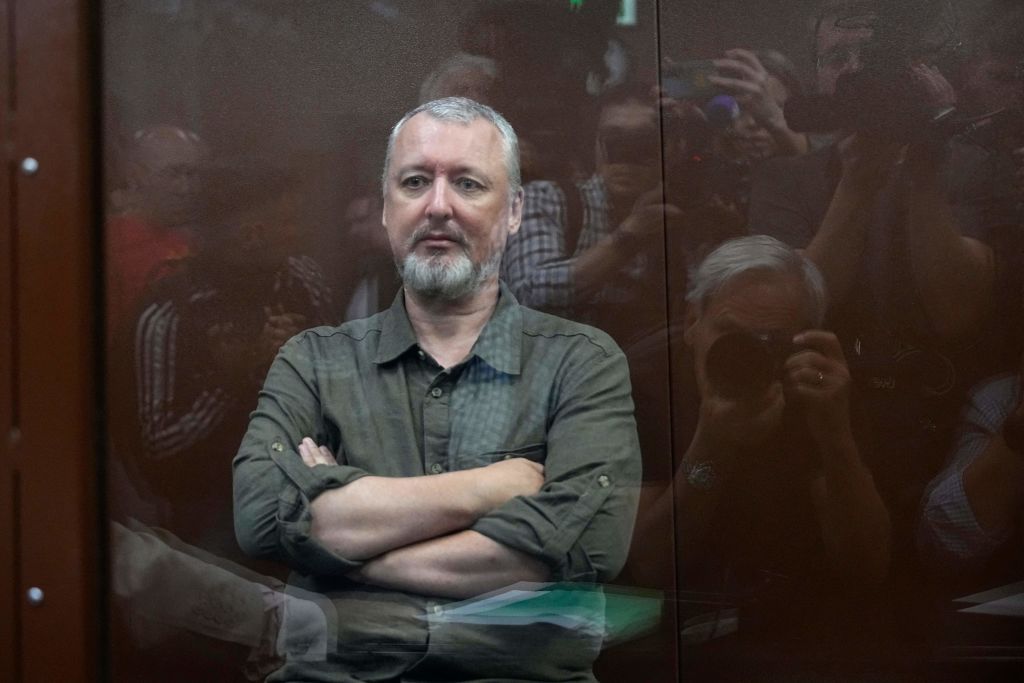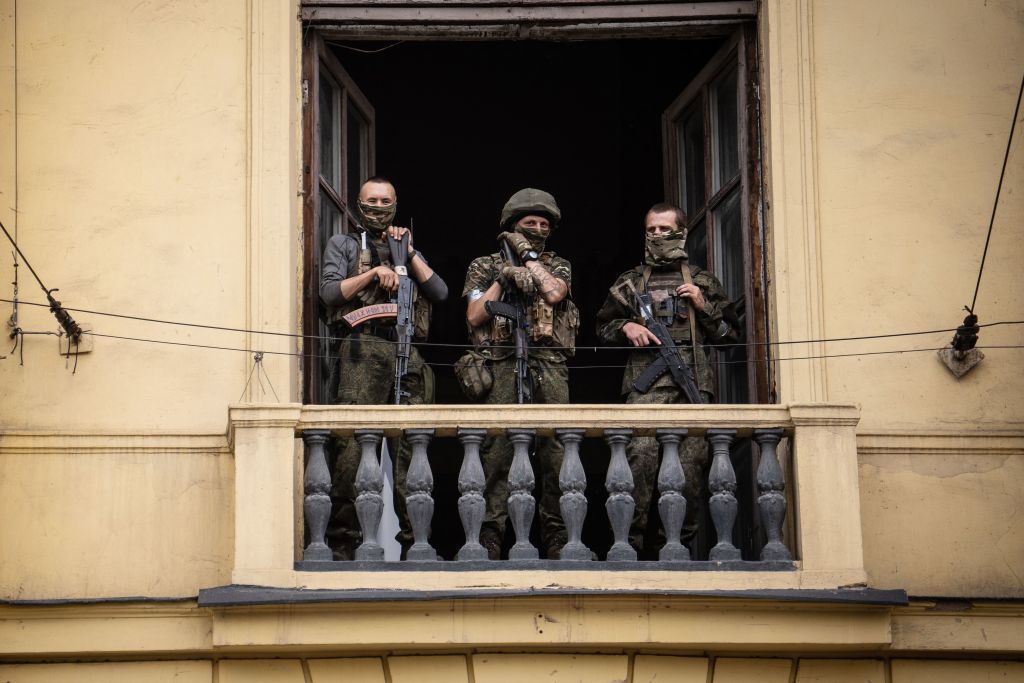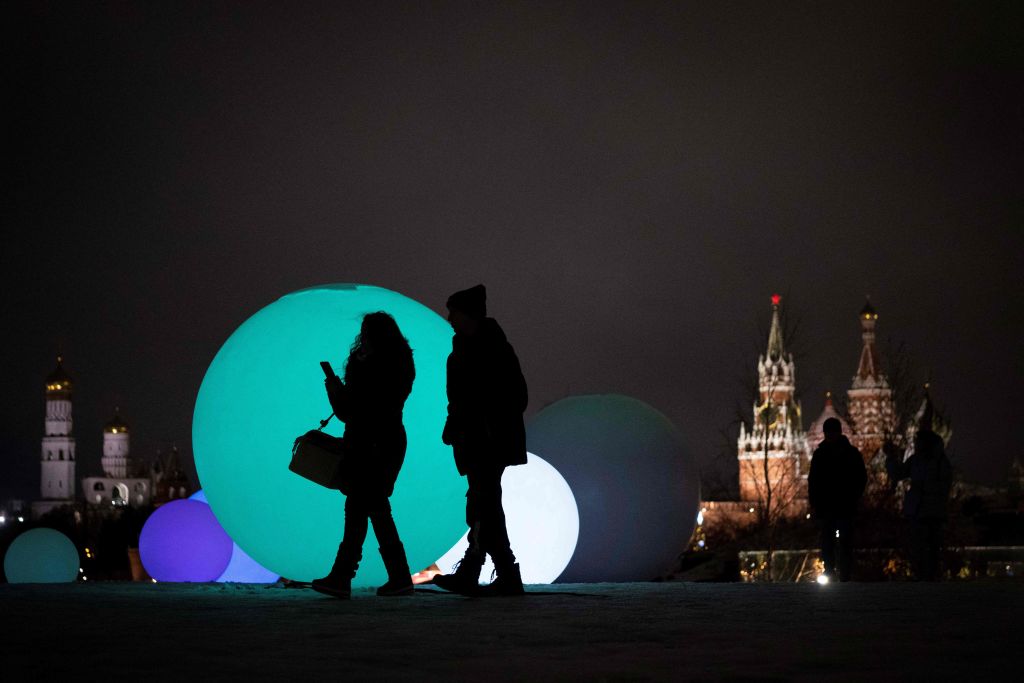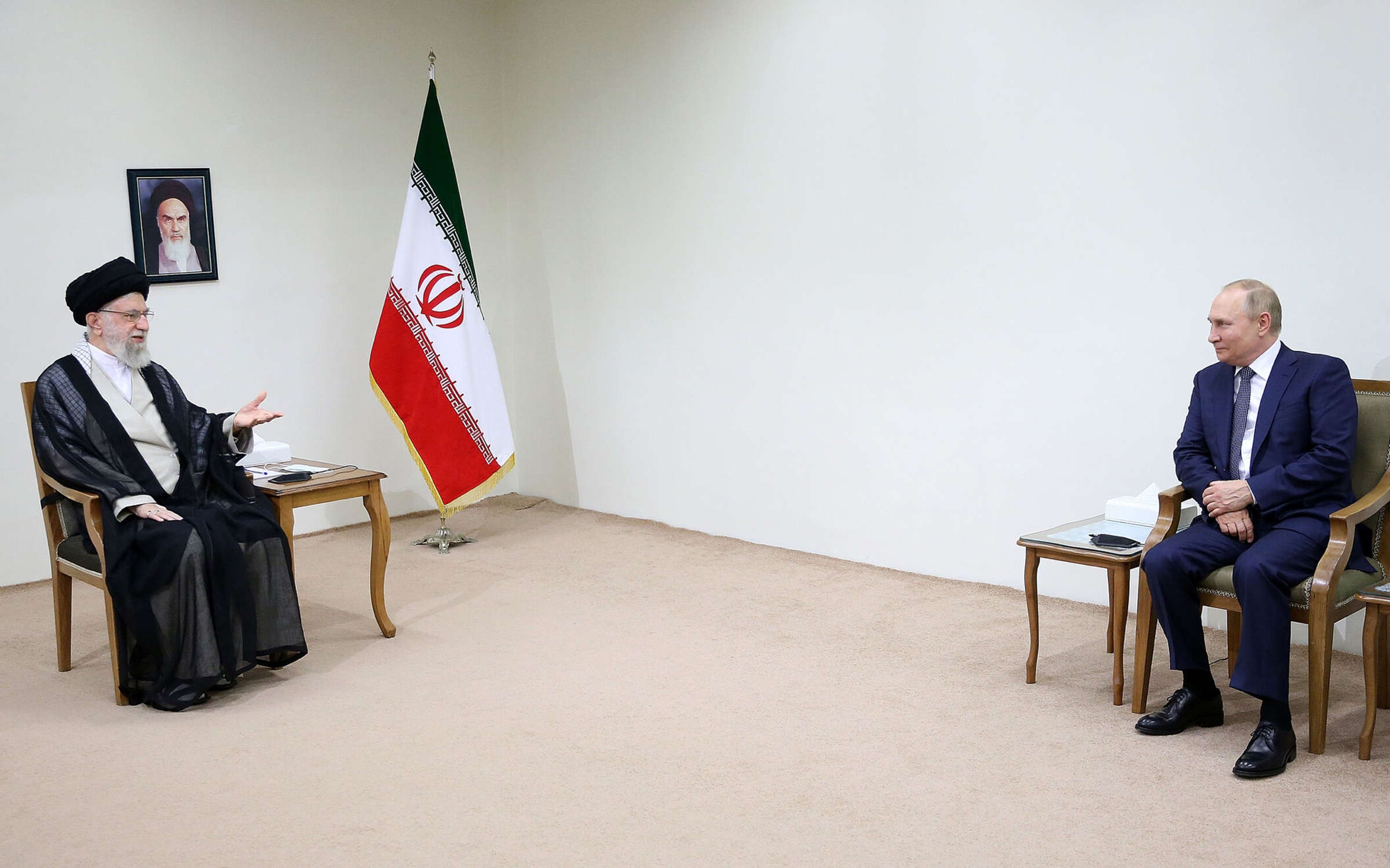Riots in North Caucasus underscore rampant antisemitism in Russia
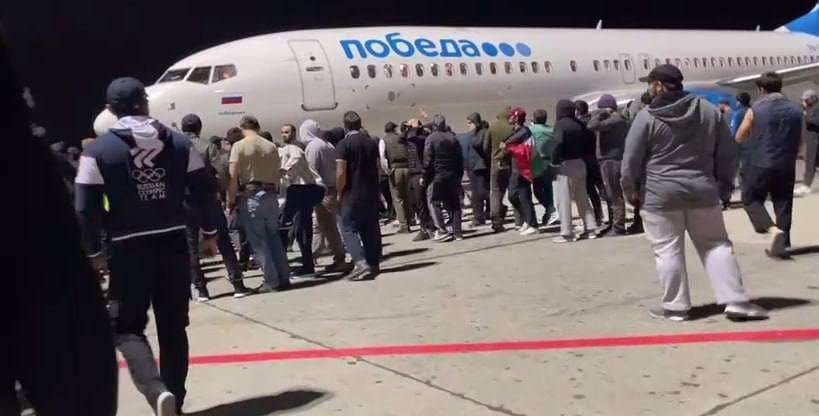
Antisemitic riots erupted in Russia’s North Caucasus on Oct. 28-29, with angry mobs looking for Jews and some going as far as calling for murdering them.
The rioters in the Muslim-majority North Caucasian regions protested against Israel amid its ongoing war with Hamas, an Islamist terrorist group in the Gaza Strip.
The upsurge in antisemitism comes amid the Russian government’s claims that it is fighting neo-Nazis in Ukraine. The unrest also seems to be at odds with Russia’s cult around the Soviet Union’s victory over Nazism in World War II.
But this glaring contradiction between the official rhetoric and reality is not something new.
Antisemitism and neo-Nazism have been rampant in Russia for decades.

Moreover, anti-Jewish and Nazi sentiment has been widespread among far-right groups that support Russia’s aggression against Ukraine and have even fought in Ukraine since 2014.
Some of the neo-Nazi groups have enjoyed Russian government support. Russian President Vladimir Putin and his top allies have not explicitly endorsed antisemitic policies but have made remarks that bordered on antisemitism.
“This is not an isolated incident in Makhachkala, but rather part of Russia’s widespread culture of hatred toward other nations, which is propagated by state television, pundits, and authorities,” President Volodymyr Zelensky said on Oct. 29.
North Caucasus unrest
The rioters in the North Caucasus gathered to protest against Israel’s conduct in the ongoing military conflict with the Hamas terrorist organization.
On Oct. 7, Hamas invaded Israel, massacred hundreds of civilians, and kidnapped at least 245 Israelis and foreigners. In response, Israel has bombarded the Gaza Strip and launched a ground offensive in the Hamas-controlled enclave.
A total of 1,416 people have been killed in Israel, and 8,306 Palestinians have been killed in the Gaza Strip, according to the Israeli and Palestinian authorities, respectively.
The Kyiv Independent can’t independently verify these claims, with Hamas authorities having previously misreported casualty rates in at least one incident.
On Oct. 28, protesters in Khasavyurt, Dagestan, held an antisemitic rally near a hotel after rumors emerged that Israeli refugees had checked in there. They demanded that the residents approach the windows and started throwing stones at the hotel.
After the protest, a sign saying “entry for Israelis (Jews) banned” was put up at the hotel.
On the same day, protesters in Cherkessk, the capital of Karachay-Cherkessia, demanded the expulsion of Jews from the region and banning Israeli refugees from coming there.
On Oct. 29, hundreds of protesters stormed Makhachkala Airport in Dagestan in an effort to find Jews on a plane that had arrived from Tel Aviv.
The rioters clashed with the police, tried to break into the plane, and threw stones at a bus transporting Israelis. The protesters also questioned people, trying to identify if they were Jews.
A total of 60 demonstrators were arrested, and 20 people, including nine police officers, were injured during the riot, according to the Russian authorities.
In Nalchik, the capital of Kabardino-Balkaria, rioters also burned a Jewish community center and wrote “Death to the Jews” on its wall on Oct. 29.
Pogroms, neo-Nazis
The North Caucasus unrest is not unique.
Russia has a long-running tradition of antisemitism going back to a series of pogroms in the Russian Empire, in the so-called Pale of Settlement, the westernmost part of the country in which permanent Jewish residency was allowed and beyond which it was banned.
The Pale of Settlement was located mostly in the territory of modern-day Ukraine, Belarus, and Poland.
Pogroms were widespread in those territories. In some cases, the Russian authorities instigated the pogroms, and in other cases, they made them possible by failing to react.
The Black Hundreds, a Russian far-right group, also participated in the pogroms.
Antisemitism also existed in the Soviet Union.
In 1948-1953, Soviet dictator Joseph Stalin launched an antisemitic campaign against “rootless cosmopolitans.” As a result, numerous Jewish intellectuals were arrested and killed.
After Stalin’s death, Jews were also discriminated against as the Soviet Union proclaimed the fight against “Zionism” as one of its foreign policy goals.
Many high-profile jobs were off-limits for Jews, and there were restrictions on Jews’ enrollment at universities and on emigration to Israel.
After the collapse of the Soviet Union in 1991, the most prominent antisemitic neo-Nazi group in Russia was the Russian National Unity, headed by Alexander Barkashov.
The group's members wore Fascist-style blackshirts and used the Nazi salute.
The organization set the struggle against the “Jewish financial oligarchy” as one of its main goals, and one of its songs had the slogan “Death to the Jews and Freemasons.”
The group has also called for the expulsion of Jews and other ethnic minorities from Russia, and its members have vandalized Jewish and Muslim graves and attacked representatives of ethnic minorities.
Members of another neo-Nazi group, the National Socialist Society-North (NSO-Sever), were convicted in 2011 for the murders of 27 immigrants and 50 assaults that took place in 2008.
Neo-Nazis’ denazification war
Despite Russian propaganda claiming that its brutal invasion of Ukraine is set to “denazify” the country, antisemitism and neo-Nazism are widespread among the groups that have supported Russia’s war against Ukraine since 2014.
One of the pro-war hawks, Vladimir Kvachkov, has claimed that Russia is “occupied by a Jewish mafia” and that Russian television is run by Jews.
In 2005, he was arrested on charges of carrying out a murder attempt on Russian politician and state official Anatoly Chubais, who is of Jewish and Latvian descent. Later, Kvachkov was acquitted by a jury.
Igor Girkin, a former officer of Russia’s Federal Security Service (FSB) who seized the Ukrainian city of Sloviansk in 2014, has also claimed that both Russia and Ukraine were run by Jews.
Girkin, who has been convicted by a Dutch court of downing the MH17 passenger flight over Ukraine, was supported by the Russian government in 2014 but later fell out with Putin because he thought the Kremlin was not radical enough in its efforts to defeat Ukraine.
In July, the Russian authorities arrested him on extremism charges.
Self-proclaimed neo-Nazi groups have also taken part in Russia’s invasion of Ukraine since 2014.
One of them is the Rusich military unit, headed by Alexei Milchakov. He has posed with a swastika and called for “killing homeless people, puppies and children.”
In 2011, Milchakov published photographs in which he killed a puppy, cut off its head, and ate it. In 2022, he also published a “manual” for torturing and killing Ukrainian prisoners of war.
Milchakov is sanctioned by the U.S., the U.K., Canada, and the EU.
Fighters of Wagner, a mercenary group that had previously fought against Ukraine, have also used Nazi symbols.
Wagner co-founder Dmitry Utkin was a fan of Nazi Germany and had many Nazi tattoos, including SS symbols. He wore a Wehrmacht field cap, greeted Wagner fighters by saying “heil,” and signed his name with the lightning bolt insignia of the SS, according to the New Yorker and Russian tycoon Mikhail Khodorkovsky’s Dossier Center.
The Wagner Group initially enjoyed the Kremlin’s support.
But later, the mercenaries fell out with Putin, launched a rebellion against the Russian government in June, and stopped it after reaching a deal with the Kremlin.
In August, Utkin, Wagner leader Yevgeny Prigozhin, and seven other people were killed as a result of a plane crash in Russia, with an explosion or a surface-to-air missile being possible reasons.
Putin’s antisemitic remarks
Putin has not explicitly endorsed antisemitism and tried to maintain ties with Israel and Russia’s Jewish community.
At the same time, the Kremlin has supported Israel’s main enemies – Iran and its proxies, the Hamas and Hezbollah terrorist groups.
Russian top officials have also made remarks that were interpreted by some as veiled antisemitism.
In 2022, Russian Foreign Minister Sergei Lavrov lashed out at Zelensky, saying that his Jewish descent didn’t contradict his alleged Nazi policies. He added that Hitler had Jewish blood and that the most radical antisemites were Jews – a reference to the fringe and dismissed theory about Hitler’s partial Jewish descent.
Israel’s then Foreign Minister Yair Lapid said then that Lavrov’s words were unacceptable and a “grave historical error.”
In June, Putin also said that Zelensky was “not a Jew but the shame of the Jewish people,” a claim wild enough that it forced Ukraine’s chief rabbi to publicly dismiss it.
In September, Putin also claimed that “Western overseers have appointed an ethnic Jew to run Ukraine” in order to “hide the heroization of Nazism.”
Meanwhile, the Kremlin has tried to distance itself from the antisemitic unrest in the North Caucasus.
Putin and other Russian officials have blamed the riots on “foreign interference,” including Ukraine’s.
Russian pro-war propagandist Alexander Kots was more outspoken in his rhetoric.
He criticized the antisemitic protesters in the North Caucasus but called for violence against Jews nonetheless.
Kots said that “those who want to kill Jews should go to Gaza or Kyiv.”


